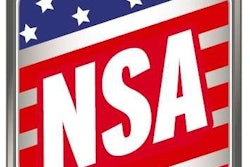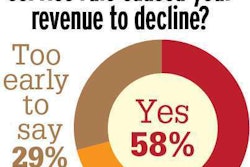Why would our government make war on one of the most productive and safest groups in the transportation sector?
While there is no declared or undeclared war on owner-operators and independent drivers by government, it sure feels like it for many of them. How else can one explain the variety of laws, regulations, and rules that have come out or are pending that may adversely affect them?
 The title of this op-ed for Overdrive by Colorado Motor Carriers Association President Greg Fulton, he says, is “a phrase that I heard from a frustrated owner-operator.”
The title of this op-ed for Overdrive by Colorado Motor Carriers Association President Greg Fulton, he says, is “a phrase that I heard from a frustrated owner-operator.”Let’s look at what this undeclared war looks like.
First, we have the federal and many state governments seeking to redefine and reinterpret what constitutes an independent contractor in trucking and the relationship between motor carriers and owner-operators. The independent contractor model and use of owner-operators in the trucking industry has been in place for more than 50 years, and many of the owners of the largest trucking companies in the country started as independent drivers. While this model is not perfect, it has generally worked well for both independent drivers and companies. Now we have a number of states pushing for these owner-operators to be considered employees instead of independent contractors. This concept fails to recognize that there are thousands of employee-driving jobs available across the country that these talented individuals could accept. Instead, they choose to be owner-operators because of the freedom it provides them and the opportunities (and risks) of being their own boss and running their own small business. Unfortunately, this push by some state governments and other interest groups has had a chilling effect as some companies reconsider the use of owner-operators for fear that they may be subject to unwarranted investigations and fines.
In the end this push by government acts to limit the opportunities for owner-operators and independent drivers.
Second, there are the new hours of service (HOS) rules, which have disproportionately affected many owner-operators. The timing of these rules is particularly frustrating as those independent drivers, who recently survived the country’s worst recession in our generation and are still struggling, now face another blow to their financial well-being. Probably even more vexing is that the new rules are not based on sound science and offer little benefit in their eyes in the way of safety.
While the new HOS rules are disconcerting, more regulations are on the way. The recent federal highway reauthorization (MAP-21) requires FMCSA to complete 29 new safety regulations within 27 months. Included in this list are several that will affect owner-operators, including rules for electronic logging devices, a national clearinghouse for drug and alcohol test results, new guidelines for safety inspections and others. While many of these proposed regulations and rules may have value in improving safety, the sheer volume of them will pose a further challenge for owner-operators in the way of costs and trying to stay compliant.
Third, the changing standards for vehicles have increased costs while posing a challenge in reliability. The 2014 engine standards are estimated to increase costs for a tractor by thousands of dollars. Based on the fact that large fleets buy significant numbers of new trucks, their costs will be substantially less per truck than those of an owner-operator buying one vehicle. Unfortunately, these new engines come on the heels of the 2010 models, which have had their share of problems from a reliability standpoint. New standards for brakes and other safety features will further push up vehicle costs in the near term, creating an even greater cost gap between owner-operators and fleets.
Finally, there is the staggering number of new state and local regulations targeted at trucking. These include local air quality regulations, idling standards, parking restrictions, noise ordinances, new fees and etc. The changes created by these new regulations are usually poorly communicated to the trucking industry and even more so to independents. In many cases, the fines for violating one of these laws can be very steep, as local governments equate big trucks with big income. In many cases independents only find out about a new regulation after they have been fined for it, which may wipe out the entire profit from a run for an owner-operator.
How do we get to a truce in this undeclared war? As in any battle, one stops firing the weapons. In this case, the weapons happen to be regulations and laws that are ill-considered and lack input from the people most affected. We need the government at all levels to “disarm” by curtailing new regulations and rules and reconsidering some of the existing ones, such as the new hours of service. Owner-operators and independent drivers have helped to build the trucking industry in our country into the most efficient freight operation in the world. Let’s not strangle these industrious and hardworking individuals with voluminous rules which are long on paper and short on benefit.










